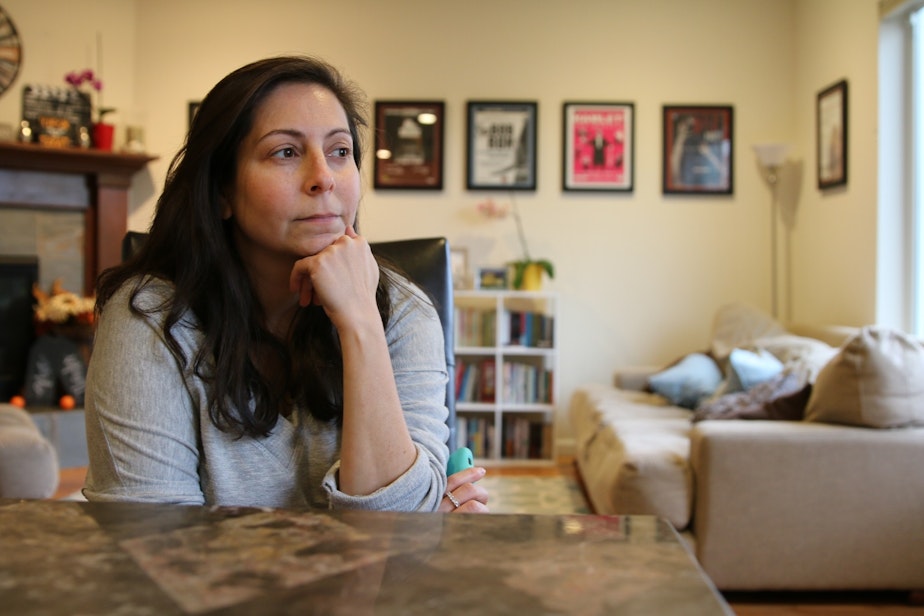'Someone killed them just because they were Jewish?' Tough conversations with kids after the Pittsburgh shooting

Kira Dorrian co-hosts a podcast about parenting. It’s not about religion, or cultural identity, but after the shootings at the synagogue in Pittsburgh, Dorrian couldn’t avoid it.
“Hi everyone, this is Kira, coming to you from my laundry room at about 7 in the morning.”
Dorrian recounted how her son and daughter, 7-year-old twins, had picked up on her parents’ grief.
They were all sitting on the family bed when her husband told the twins about Pittsburgh. “That’s why Mommy and Daddy were having such a tough day," he said.
Kira Dorrian 's son replied, "Someone killed them just because they were Jewish?"
"Yes, that’s right honey," she said.
He paused. "We’re Jewish,” he said.
Dorrian used the story to teach her twins about discrimination.
For some, it’s religious identity. For others, it’s the color of their skin, or sexual orientation. But this was the moment when her kids seemed to get it.
“They just lost that innocence on Saturday,” said Dorrian.
There was another parent grieving, in that household. Kira Dorrian’s father, Steve Gersman, an immigrant and the son of parents who spoke frequently of the Holocaust.
“It’s extremely hard," said Gersman. "It brings up so many emotions for me.”
The violence in Pittsburgh echoed across the layers of his life. There was the 2006 Jewish Federation shooting in Seattle, when he lost someone he knew. There were the stories about the Holocaust that his parents told him.
Steve Gersman had wanted his daughter to be free from that.
“As an immigrant who came to this country, a country of freedoms from all sorts of things, including threats to our safety, it’s gut-wrenching right now to see her suffering like this," said Gersman. "To see my dream of America dissolve. And I just weep for all of us, including her.”
For Dorrian, who was a teenager at the time of the Jewish Federation shooting, it took the Pittsburgh shooting for her father's stories to sink in.
“When you’re young, you’re so naïve. And you don’t think through the enormity of the situation," said Dorrian.
Rabbi Rachel Nussbaum founded a congregation in northwest Seattle called Kavana. As a new congregation, they had wanted, in some ways, to escape the long memory of historical violence, she said.
"In a lot of ways, Kavana was created because we wanted to create a Judaism that was not all about responding to anti-semitism, but was a joyous expression of our traditions in and of itself," Nussbaum said.
But less than month after Kavana opened, there was the Jewish Federation shooting.
Today, they meet at different places each week, and they don’t announce publicly where they meet.
"People have to RSVP for our events, then we can see who’s coming and then we can share out location details," said Nussbaum.
Nussbaum and Dorrian have tried to balance their optimism with pragmatism. It’s part of being Jewish, they say.
As a parent and a rabbi, Nussbaum said it’s important that it happens within a supportive community.
“Kids need to be able to process this sort of tragedy in the presence of adults who can help them put the puzzle pieces together," Nussbaum said, "rather than being left to their own devices to concoct a story that sometimes can be far scarier.”
Growing up doesn’t happen in a single moment, when a child first understands prejudice and violence in a personal way.
For Jewish children, as with children who are African-American or Sikhs or LGBTQ or others who may sometimes feel like outsiders in America, growing up happens in layers.
And each layer brings a different kind of grief.

